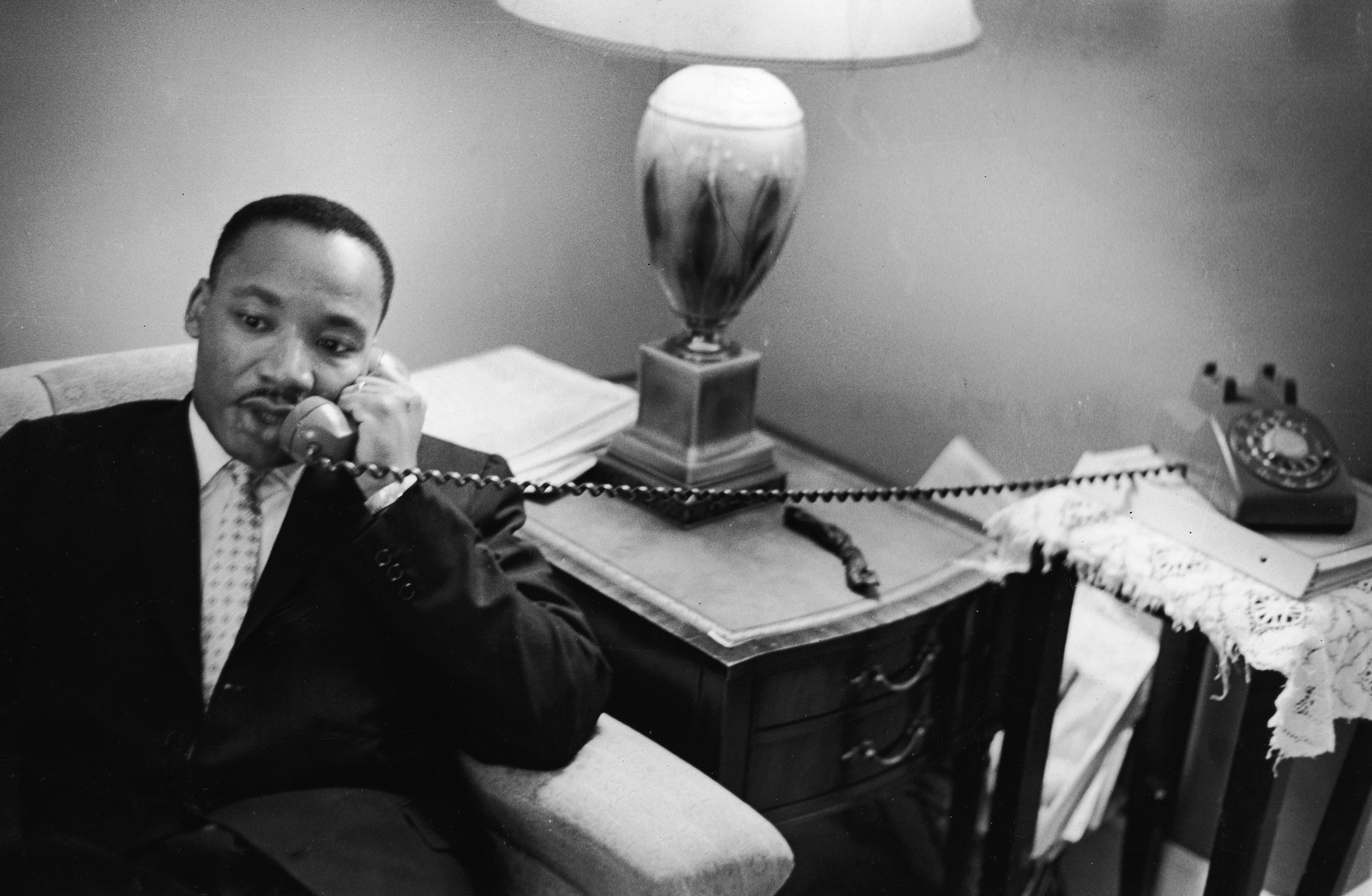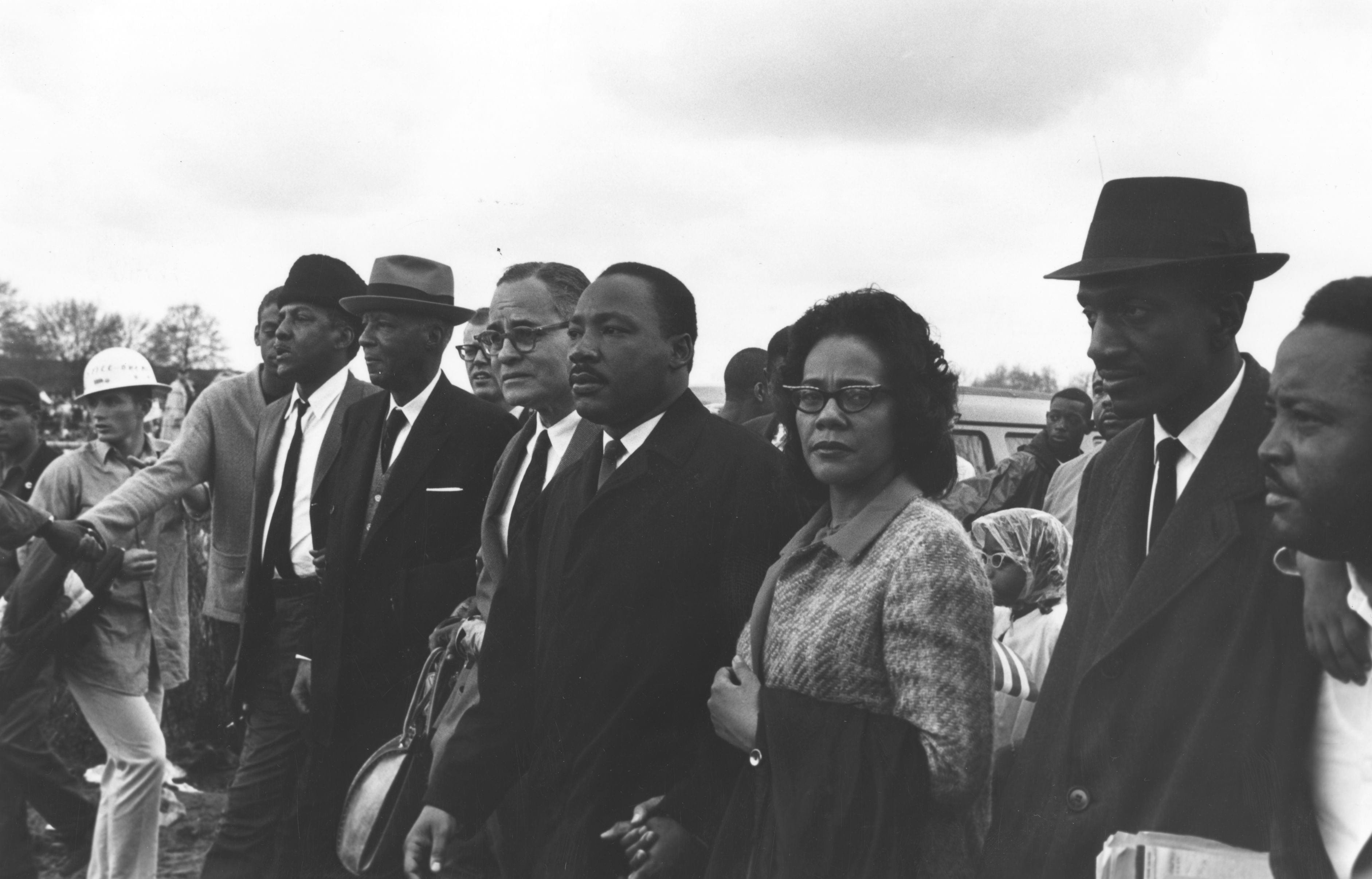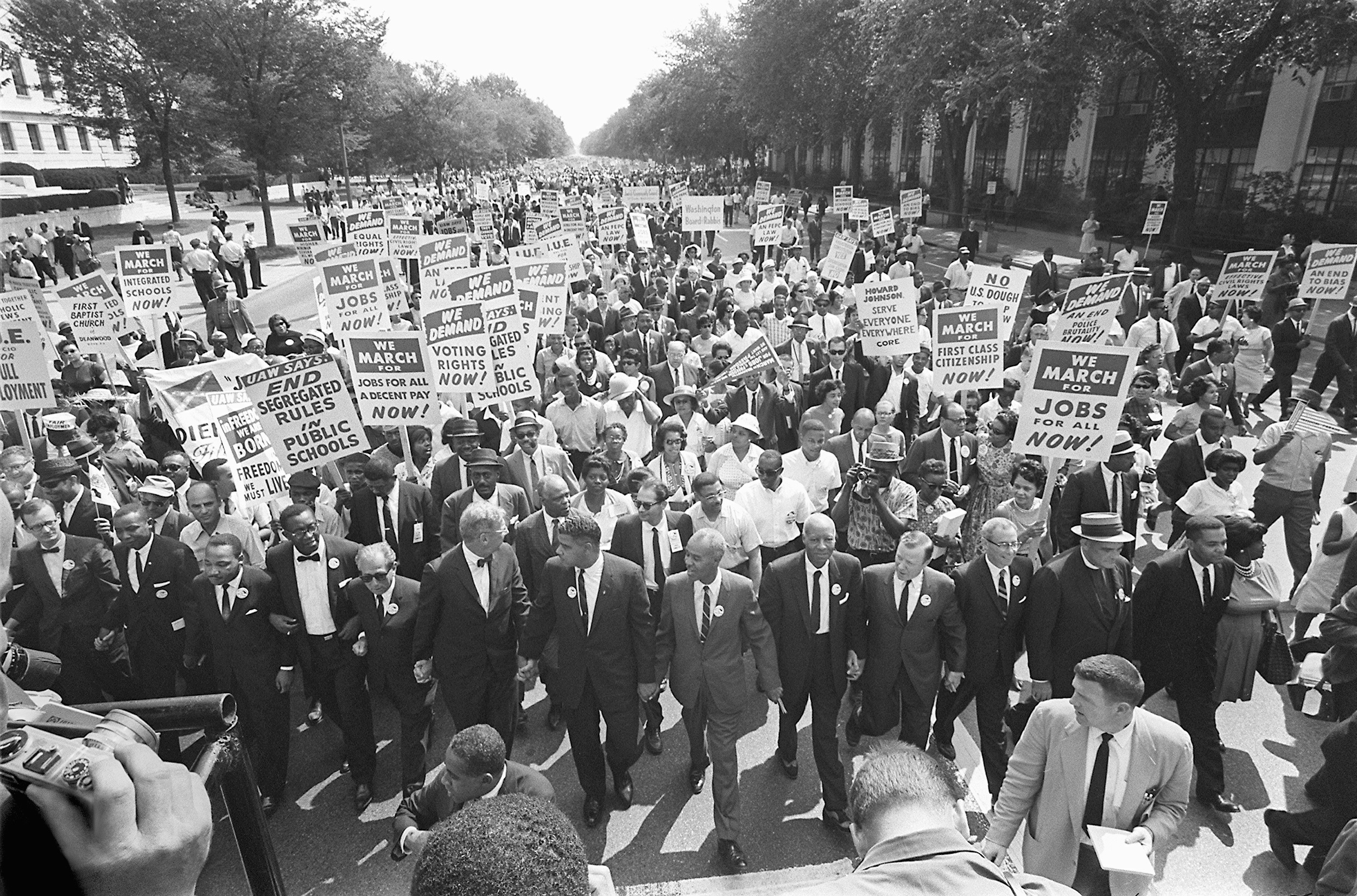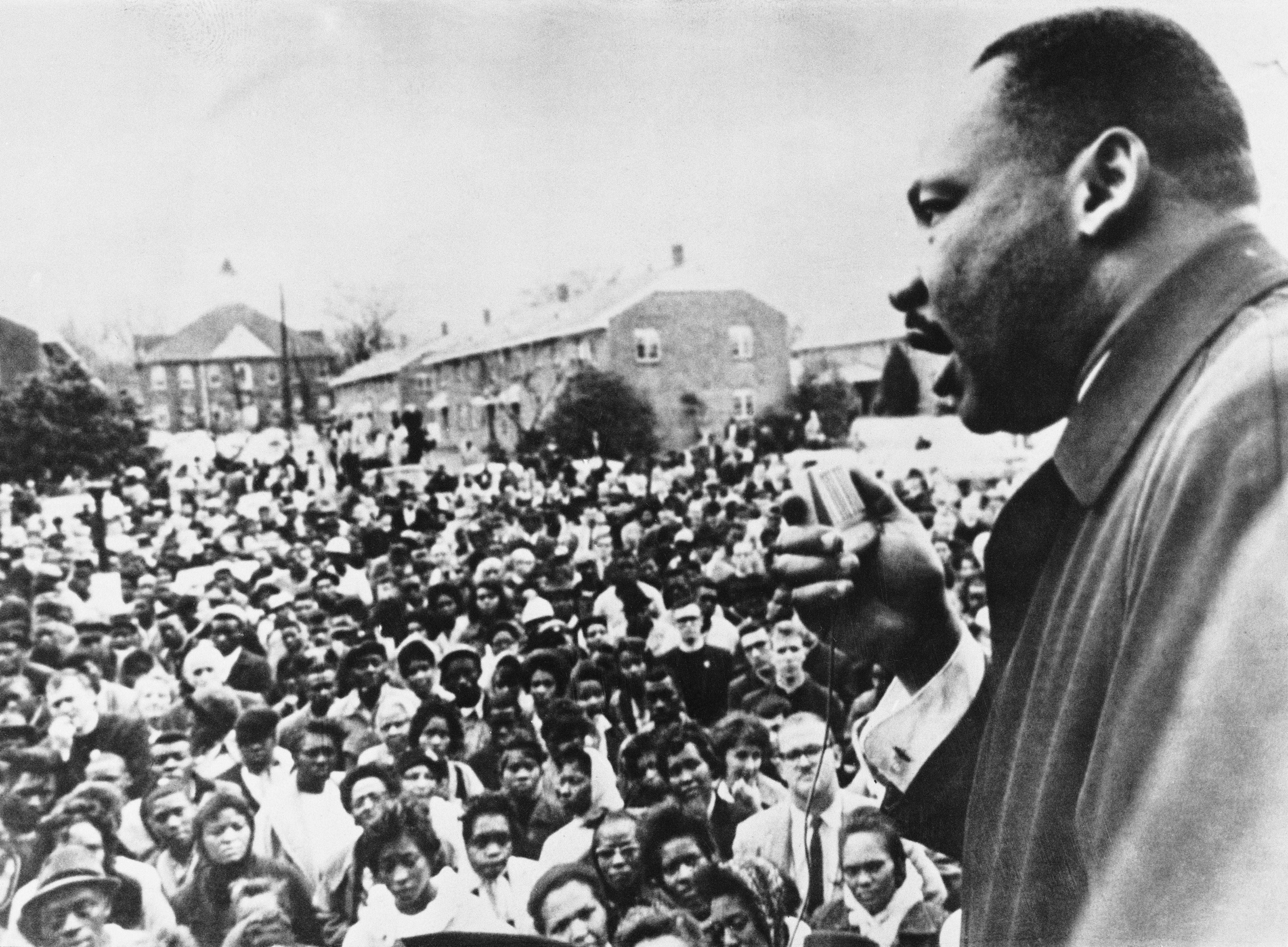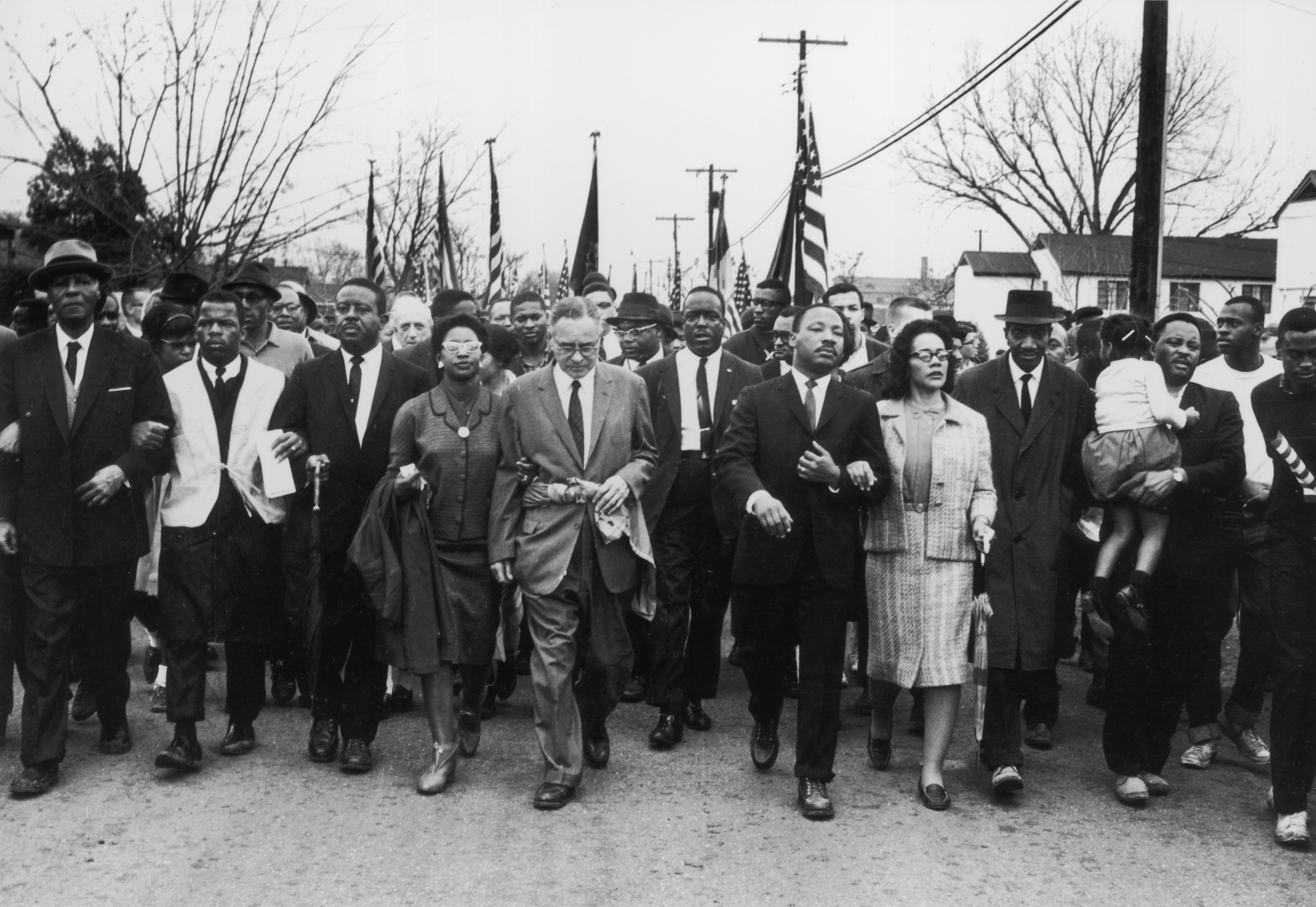Nation reflects on Dr. Martin Luther King Jr.’s message of equality, benevolence
(NewsNation Now) — Monday marked the observance of what would have been Dr. Martin Luther King Jr.’s 93rd birthday, serving as a reminder of King’s message of racial equality and non-violence.
King, the only non-president to have a national holiday dedicated in his honor, would have celebrated his birthday on Saturday, Jan. 15.
Monday’s celebration of the civil rights leader’s life has fanned the flames of the national debate surrounding voter rights.
On Monday, President Joe Biden said Americans must commit to King’s unfinished work of delivering jobs and justice and protecting “the sacred right to vote, a right from which all other rights flow.”
King’s family joined demonstrators Monday in Washington to call for Senate action on the voting rights bill.
After crossing the Frederick Douglass Memorial Bridge during the rally, Martin Luther King Jr’s granddaughter, Yolanda Renee King, spoke to the crowd.
“Let the Senate hear you. Let the White House hear you all. Spread the word. Have you all heard? All across the nation, we are going to be a great generation,” she said as the crowd repeated her words.
Major holiday events on Monday included marches in several cities and the annual Martin Luther King Jr. service at the slain civil rights leader’s Ebenezer Baptist Church in Atlanta, where U.S. Sen. Raphael Warnock is the senior pastor. Pews have been packed by politicians in past years, but given the pandemic, many offered pre-recorded speeches instead.
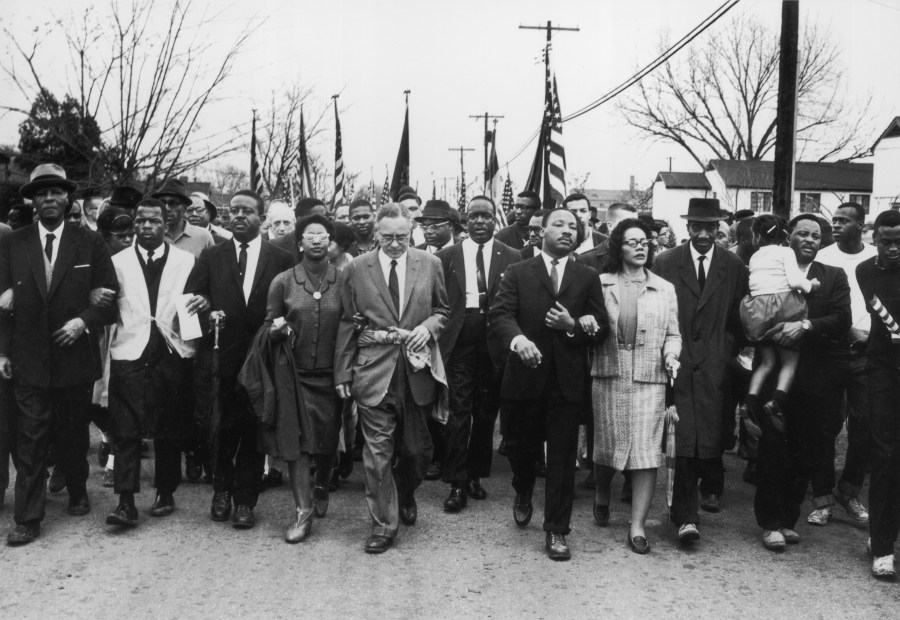
Martin Luther King Jr. was shot and killed while standing on a balcony of the Lorraine Motel in Memphis, Tennessee, on April 4, 1968. He was 39 years old. The civil rights leader’s body was returned to his hometown of Atlanta, Georgia, where his funeral ceremony was attended by high-level leaders of all races and political stripes.
Among King’s notable accomplishments are the success of and continued reverence for his “I Have a Dream” speech and “Lecture from a Birmingham Jail.”
In 1964, King became the youngest person to with the Nobel Peace Prize. That same year, Congress passed the landmark Civil Rights Act. The legislation essentially eliminated racial segregation in the U.S. and made it illegal to discriminate against Black people or other marginalized groups in hiring, education and other spheres.
In 1965, Congress passed the Voting Rights Act, a result of King’s Selma to Montgomery, Alabama, March for Voting Rights.
Nearly 60 years later, King’s surviving family continues to warn against what the civil rights leader called the triple evils: poverty, racism and militarism.
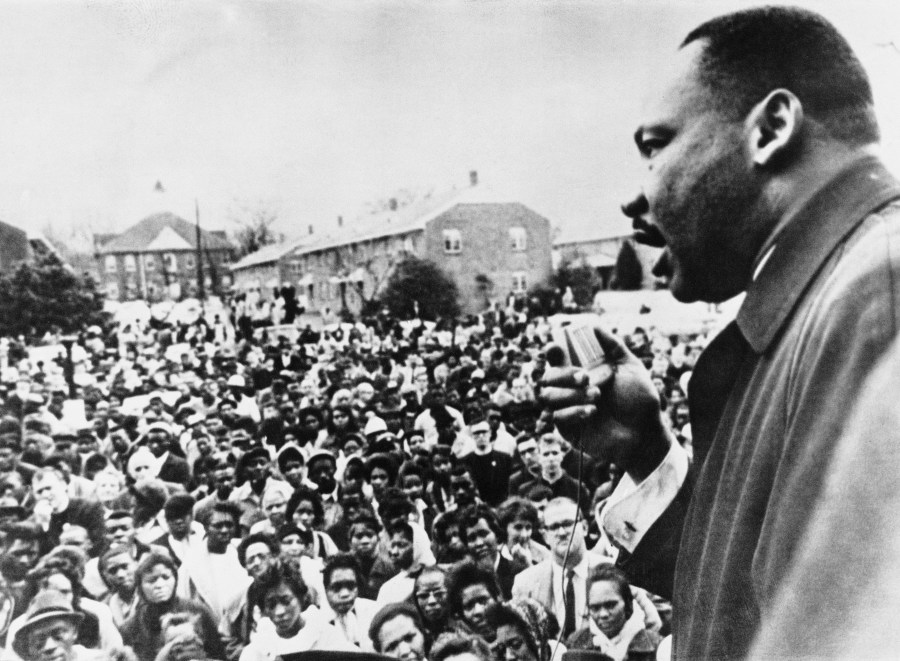
Speakers at Monday’s Beloved Community Commemorative Service also highlighted the ongoing calls for improved voting rights.
Warnock, D-Georgia, said those who remember King on Monday must not also “misremember his legacy.”
“If you will speak his name you have to stand up for voting rights,” Warnock said.
Along those lines, Martin Luther King III came to Arizona with harsh words for Democratic Sen. Krysten Sinema, whose refusal to change the Senate’s Jim Crow-era filibuster rules makes voting rights legislation unlikely to pass.
King told a crowd campaigning to protect voting rights that Sinema cannot simultaneously express support for the legislation while also blocking their approval.
Martin Luther King Jr.’s youngest daughter, Bernice King, has asked the country to shift into a mindset of “interconnectedness.”
“Human beings simply cannot holistically afford to continue a collective trajectory of self-centeredness and of being more ‘thing-centered’ than ‘people-centered,'” Bernice King said in a statement posted to the King Center’s website on Jan. 13. “We must shift our perspectives in recognition of our interconnectedness and interdependence. We must shift power and resources to eradicate racism, inequity and poverty.”

